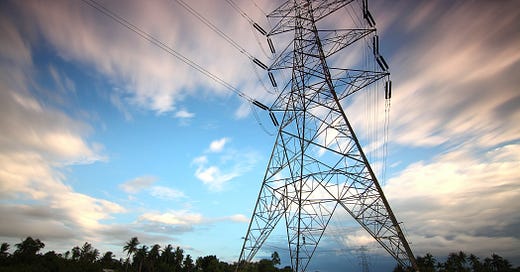In the news: The war in Ukraine tests European solidarity
This week in The Beubble, we consider Europe’s options, as the war in Ukraine passed the six-month mark. Will the conflict at its borders draw the continent closer, or will it break the EU apart, a consequence that Vladimir Putin perhaps only dreamed of when he started the attack?
🇳🇴 Norway is considering reducing its energy exports to the EU
Euractiv journalists Kira Taylor, Pekka Vanttinen and Vlad Makszimov argued that the recent decision of Norway to reduce its export to EU neighbors shows the lack of preparation for the Union’s energy crisis response.
Norway, which is a net exporter of electricity to the whole Scandinavian region, announced that it would reduce its energy exports to safeguard national consumers. The three journalists reported that Finland, although an important energy partner to the European Union, never appears in the Commission’s publications related to the current energy crisis.
Denmark, Sweden, and Finland reacted with concern to the Norwegian decision. The reduction of Norwegian energy exports will do nothing to help them live through the winter when demand for power is the highest.
🇸🇰 Poland and the Czech Republic to protect the Slovak skies for two years
While the war lingers in and over Ukraine, Poland, the Czech Republic and Slovakia agreed on a defense pact.
Slovakia is getting rid of its old Soviet-made jet fighters and will not receive its brand new F-16 before 2024. In the meantime, its air protection will be carried out by Poland and the Czech Republic in what is a considerable show of European solidarity.
This military cooperation is a perfect example of what a European Common Defense system could look like.
A possible way forward is a swap deal – Slovakia gives its jets to Ukraine but will receive military equipment from another country in return. - Michal Hudec for Euractiv
🇪🇺 Other news
Hoping to reduce its energy needs, France considers an EU-wide ban on private jets. Clément Beaune, the french Transportation minister - and former EU affairs minister under the EU French Presidency - said he would push for the ban at the next EU ministers’ meeting.
If you believe the stereotype that Austrians are careful about public money spendings, you will be surprised by what the federal government came up with recently: Austria will start a marketing campaign to reduce refugee flows. Euractiv reported that ”the government aims to conduct “anti-marketing” campaigns in countries where refugees are suspected of migrating for economic reasons to counter promises made by people smugglers.” May I dare to propose a better method to limit migration flows to Austria? Perhaps the money spent on this campaign may have - I don’t know - actively helped improve the living conditions in these countries.
An agreement on Iranian nuclear might be close. Unexpectedly relaunched this month at the initiative of the EU, the deal might lead to the removal of American sanctions against the Islamic republic. This week, EU foreign affairs chief Josep Borell claimed that the current proposal would make for a “much safer world”.
That’s it for this week. Thank you for your continuous support and visit to The Beubble. Have a nice weekend, and see you on Monday.





